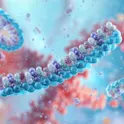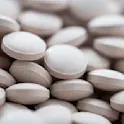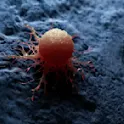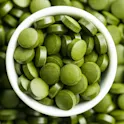Gene essential for vitamin D absorption could help unlock treatments for cancer and autoimmune diseases
Scientists have identified the human gene SDR42E1 as essential for the absorption of vitamin D from the intestine, its subsequent metabolic processing, as well as the production of lipids and steroids. Without the functional protein, the survival of cells dropped by 53%. This discovery has at least two potential applications in precision medicine. First, the experiments showed that the gene can be blocked to selectively kill cancer cells. Second, boosting SDR42E1’s expression could help treat many other diseases, for example, autoimmune and metabolic disorders, against which vitamin D and its related forms are thought to protect.














